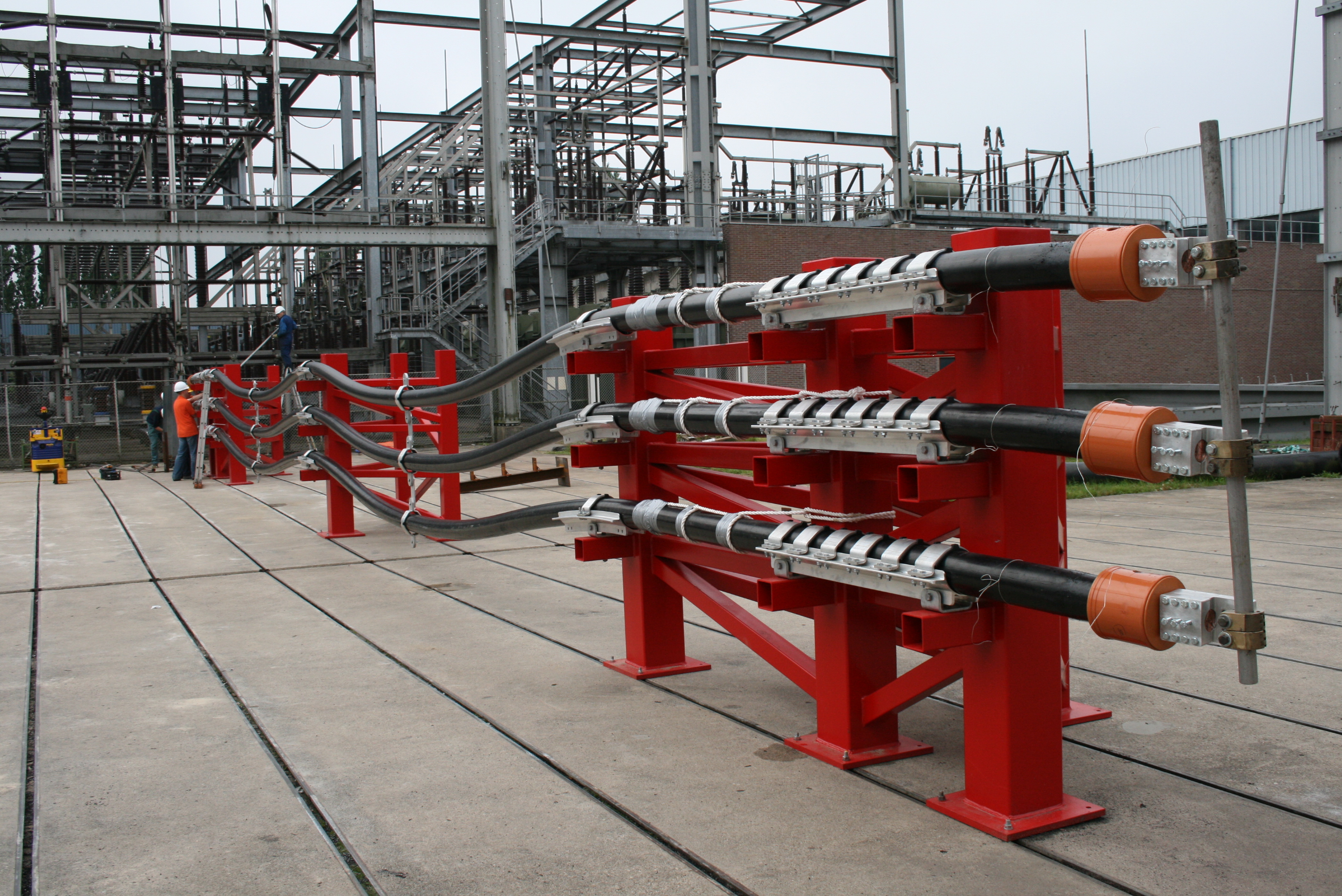 News
News
![]() Published: 20th April, 2010
Published: 20th April, 2010
ELLIS LAUNCHES PROJECT SPECIFIC TESTING SERVICE
Press Release
ELLIS LAUNCHES PROJECT SPECIFIC TESTING SERVICE
Ellis Patents has launched a project specific testing service that it says will remove any uncertainty about the ability of cable cleats to do the job they have been specified for.
The leading cleat manufacturer had previously gone on record calling for compulsory third party certification of all cleats, but says that a lack of understanding about the process has resulted in products continuing to be incorrectly specified.
The company’s managing director, Richard Shaw commented: “Third party certification really should clear up any doubts about a cleats ability to withstand the maximum force it is likely to experience in any given installation. The problem is that the quoted short circuit withstand, which is seen as the indicator of a cleats suitability for a project, is only valid for a cable diameter equal to or greater than the diameter of the cable used in the test.
“If the project in question is using smaller cables than those referred to in the test (and the fault level and spacing is the same) then the force between the cables is proportionally greater, meaning the certificate is inappropriate and the cleats will not provide the protection they are installed to give.”
Intended to wipe out this issue, Ellis Patents new service provides specifiers and contractors with the opportunity to test the cables and cleats they intend to install in the most-extreme short-circuit conditions likely to occur in the final installation. A procedure that means the tested cleats can be granted project specific third party certification and be installed with absolute confidence.
“For a long time cable cleats have been wholly underestimated and while this situation has begun to be rectified by the introduction of specific European and International Standards, the process is being hindered by those who continue to exploit the lack of widespread knowledge about cleats and short-circuit testing in order to make sales.”
“Until such time as all manufacturers are pulling in the same direction to deliver safe products to a recognised standard then the cable cleat market will not receive the recognition it needs in order to see an end to the problem of under specified cleats.”
Ellis Patents project specific testing service is part of its on-going commitment to short circuit testing and third party certification. The company currently spends a minimum of one allocated day every six months at a specialist facility in the Netherlands where it tests its new or enhanced products prior to bringing them to market, and seeks to validate claims made by other manufacturers.
Ellis Patents has launched a project specific testing service that it says will remove any uncertainty about the ability of cable cleats to do the job they have been specified for.
The leading cleat manufacturer had previously gone on record calling for compulsory third party certification of all cleats, but says that a lack of understanding about the process has resulted in products continuing to be incorrectly specified.
The company’s managing director, Richard Shaw commented: “Third party certification really should clear up any doubts about a cleats ability to withstand the maximum force it is likely to experience in any given installation. The problem is that the quoted short circuit withstand, which is seen as the indicator of a cleats suitability for a project, is only valid for a cable diameter equal to or greater than the diameter of the cable used in the test.
“If the project in question is using smaller cables than those referred to in the test (and the fault level and spacing is the same) then the force between the cables is proportionally greater, meaning the certificate is inappropriate and the cleats will not provide the protection they are installed to give.”
Intended to wipe out this issue, Ellis Patents new service provides specifiers and contractors with the opportunity to test the cables and cleats they intend to install in the most-extreme short-circuit conditions likely to occur in the final installation. A procedure that means the tested cleats can be granted project specific third party certification and be installed with absolute confidence.
“For a long time cable cleats have been wholly underestimated and while this situation has begun to be rectified by the introduction of specific European and International Standards, the process is being hindered by those who continue to exploit the lack of widespread knowledge about cleats and short-circuit testing in order to make sales.”
“Until such time as all manufacturers are pulling in the same direction to deliver safe products to a recognised standard then the cable cleat market will not receive the recognition it needs in order to see an end to the problem of under specified cleats.”
Ellis Patents project specific testing service is part of its on-going commitment to short circuit testing and third party certification. The company currently spends a minimum of one allocated day every six months at a specialist facility in the Netherlands where it tests its new or enhanced products prior to bringing them to market, and seeks to validate claims made by other manufacturers.